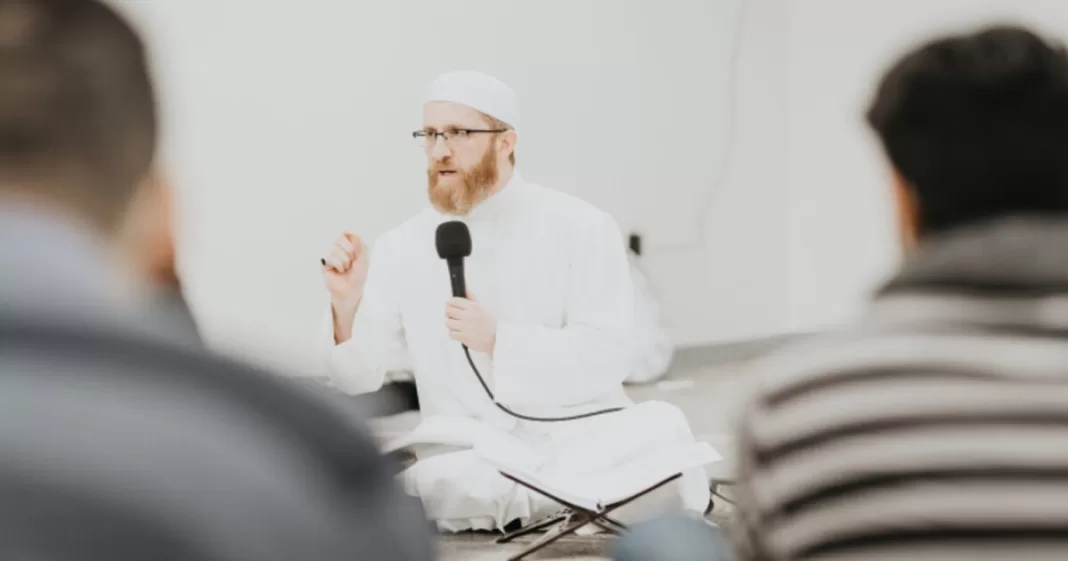In a world fraught with misunderstandings and divisions, it is imperative that we find ways to bridge gaps and foster understanding among different communities. One inspiring story of how dialogue can dismantle hate comes from the experience of Imam Abd Alfatah Twakkal, who transformed the perception of an anti-Islam individual through a heartfelt conversation.
An Unexpected Encounter
Imam Twakkal’s encounter with an anti-Islam internet troll at the London Muslim Mosque is a powerful testament to the impact of personal engagement. Instead of responding to the man’s provocation with anger or defensiveness, Twakkal chose to ask questions in return. By inviting the man to have a conversation and encouraging him to visit the mosque, Twakkal demonstrated a willingness to listen and engage.
Read More: London march commemorates 75th anniversary of the Nakba
A Meeting of Minds
During their hour-long conversation, Imam Twakkal patiently addressed the man’s misconceptions about Islam. By sharing his knowledge and personal experiences, Twakkal provided a compassionate perspective that challenged the man’s preconceived notions. The exchange fostered empathy and created an environment conducive to mutual understanding.
Transformation of Perception
At the end of their conversation, the man experienced a complete change of heart. His initial hostility and prejudices were replaced with a newfound appreciation and support for the Muslim community. This transformation underscores the potential for positive change that lies within each of us. It serves as a reminder that, with patience and understanding, we can combat hate and build bridges even with those who appear closed off to different beliefs.
Concrete Steps towards a More Inclusive Society
Imam Twakkal’s story exemplifies the small but effective steps individuals can take to stem the tide of hate. Rather than passively accepting the presence of division and misunderstanding, we must actively engage with others.
One of the most powerful ways to combat hate is to reach out to individuals who hold prejudiced views and engage them in meaningful conversations. By taking the initiative to understand their concerns and perspectives, we can create opportunities for dialogue. Encourage questions, dispel misconceptions, and share personal stories that humanise different communities. Through patient and respectful conversations, we can challenge biases and foster empathy.
Promoting interfaith events and initiatives is another essential step toward building understanding and breaking down barriers. These platforms bring people from diverse religious backgrounds together, allowing them to learn from one another, celebrate commonalities, and deepen mutual respect. By creating spaces for interfaith dialogue and collaboration, we can bridge divides and foster a sense of unity within our communities.
Organising educational sessions or workshops in schools, community centres, and workplaces is crucial to raising awareness about different faiths and cultures. By providing accurate information and dispelling stereotypes, we can foster understanding and promote tolerance. These outreach efforts can help dismantle biases and create a more inclusive environment where diversity is celebrated.
Supporting policies and initiatives that protect marginalised communities and promote inclusivity is a vital aspect of combating hate. By participating in advocacy campaigns, attending public consultations, or engaging with local government representatives, we can influence the development of policies that address systemic issues and safeguard the rights of all individuals. This proactive approach ensures that our efforts extend beyond personal interactions and contribute to a broader societal change.
Read More:
The story of Imam Abd Alfatah Twakkal and the transformation of an anti-Islam individual serves as a powerful reminder that conversation and education are potent antidotes to hate. By actively engaging with others, fostering empathy, and dispelling misconceptions, we can gradually build inclusive communities that celebrate diversity. Each of us possesses the power to make a difference, and through our collective efforts, we can create a world that is more understanding, compassionate, and united. Let us embrace the challenge of bridging divides and strive for a future where hate and prejudice have no place.














